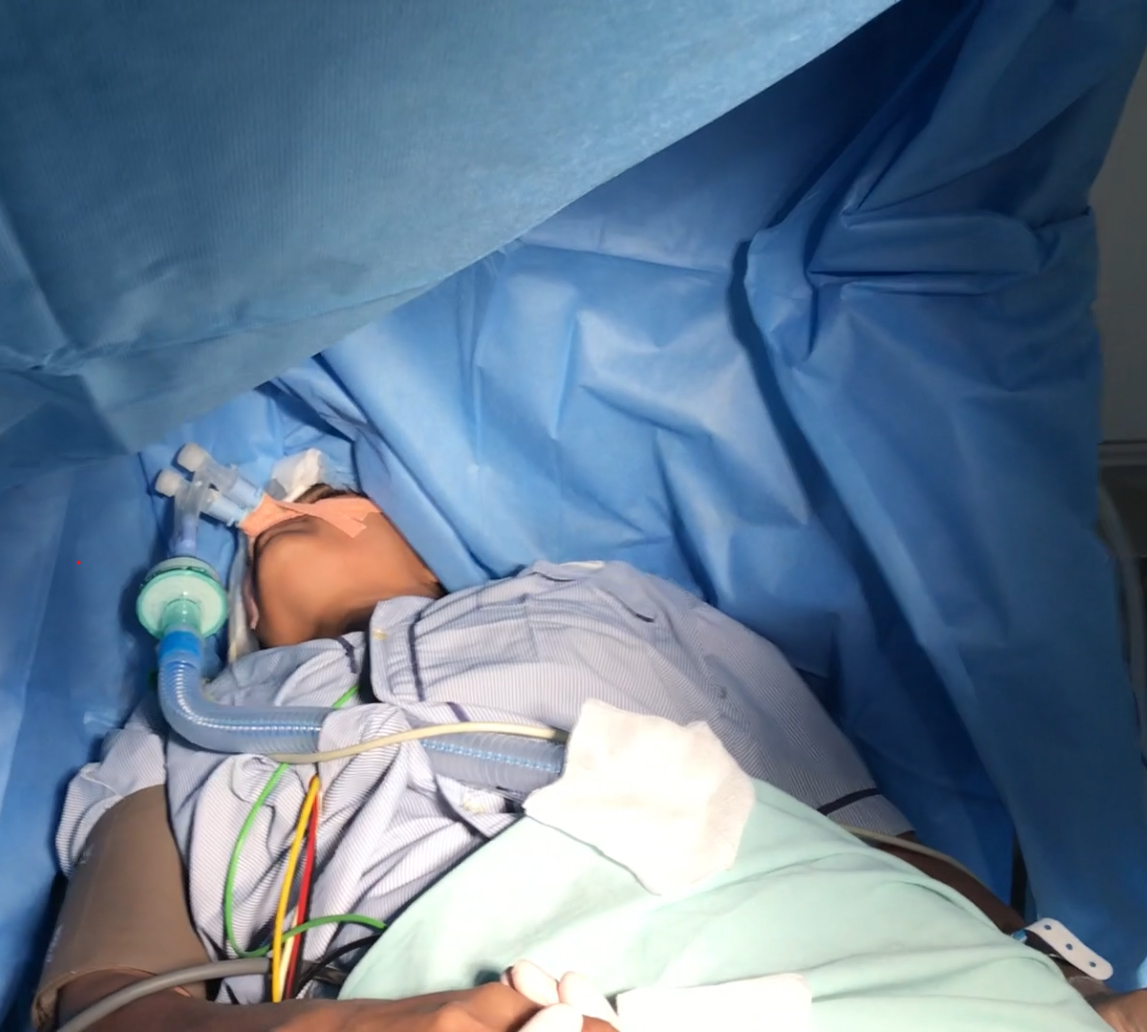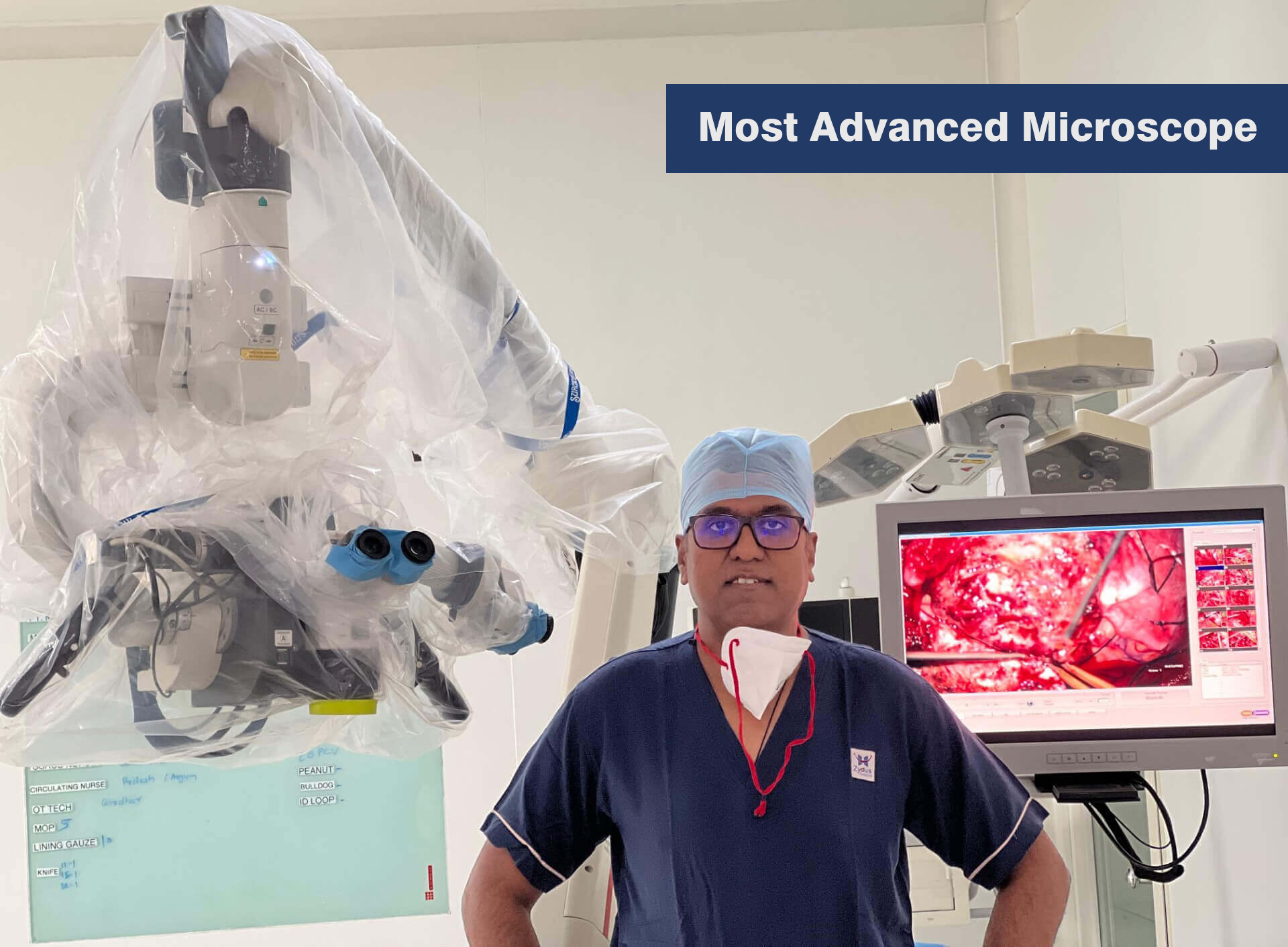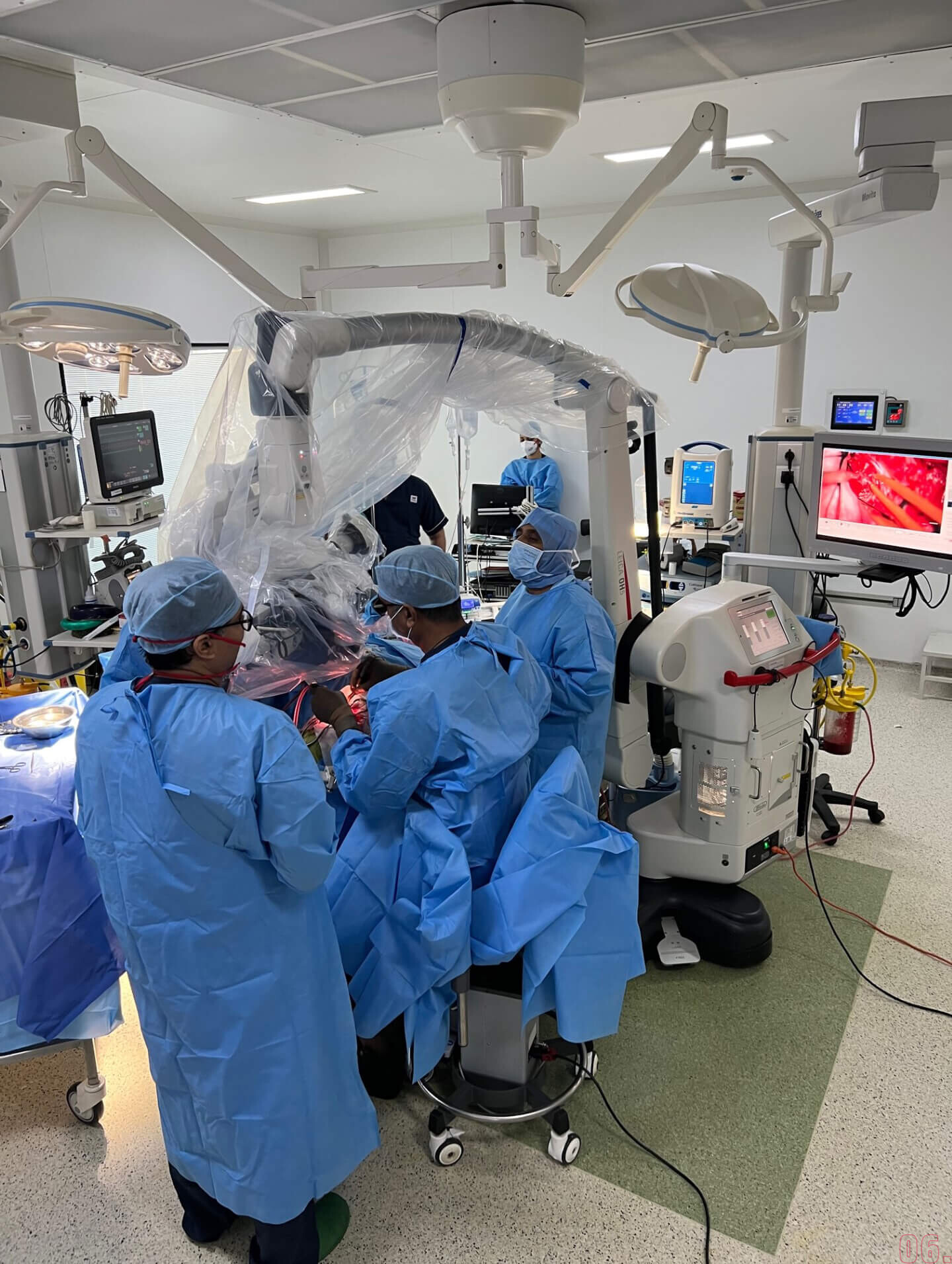Brain Tumour Surgery & Treatment
Dr. Kalpesh Shah: Brain Tumor Specialist
A brain tumor refers to an abnormal growth of cells within the brain. These tumors can be either benign (non-cancerous) or malignant (cancerous), and they can develop in different areas of the brain. The brain is a complex organ responsible for various functions, so any abnormalities can have a significant impact on a person’s health and well-being.
Symptoms of Brain Tumors
The symptoms of a brain tumor can vary depending on its size, location, and rate of growth. Some common symptoms include:
- Headaches: Frequent or severe headaches, especially in the morning or accompanied by nausea and vomiting.
- Seizures: Sudden convulsions or seizures without any history of epilepsy.
- Cognitive and Behavioral Changes: Memory problems, confusion, difficulty concentrating, personality changes, and mood swings.
- Neurological Deficits: Weakness or paralysis in one side of the body, difficulty speaking or understanding, vision or hearing problems, and coordination issues.
- Nausea and Vomiting: Unexplained nausea or vomiting, often accompanied by other symptoms.
Causes of Brain Tumors
The exact causes of brain tumors are still not fully understood. However, certain factors may increase the risk of developing a brain tumor, including:
- Genetic Factors: Some rare genetic conditions can predispose individuals to brain tumors.
- Radiation Exposure: Previous exposure to high-dose radiation, such as radiation therapy for other cancers or certain diagnostic tests.
- Family History: Having a family history of brain tumors may slightly increase the risk.
- Age: Certain types of brain tumors are more common in specific age groups, although they can occur at any age.
- Environmental Factors: Although not yet fully established, some studies suggest that exposure to certain chemicals or electromagnetic fields may be associated with an increased risk of brain tumors.
Diagnosing Brain Tumors:
Diagnosing a brain tumor requires a comprehensive evaluation by an experienced specialist like Dr. Kalpesh Shah. The following diagnostic tools and procedures may be used:
- Neurological Examination: Evaluation of the patient's neurological function, including reflexes, coordination, and sensory responses.
- Imaging Tests: Magnetic Resonance Imaging (MRI) or Computed Tomography (CT) scans provide detailed images of the brain, helping identify the location and size of the tumor.
- Biopsy: A sample of the tumor tissue is extracted and examined under a microscope to determine its nature (benign or malignant).
- Lumbar Puncture: In certain cases, a sample of cerebrospinal fluid is taken to check for any abnormalities.
- Genetic Testing: Molecular and genetic tests may be performed to identify specific genetic mutations associated with brain tumors.
Brain Tumor Treatment by Dr. Kalpesh Shah
Dr. Kalpesh Shah is a highly skilled and experienced specialist in brain tumor treatment. He understands the complexities of brain tumors and is committed to providing the best possible care to his patients. Dr. Shah utilizes a multidisciplinary approach and stays up-to-date with the latest advancements in brain tumor treatment to ensure the best outcomes for his patients.
Treatment Options:
The treatment plan for a brain tumor depends on several factors, including the type, size, location, and grade of the tumor, as well as the patient’s overall health. Dr. Kalpesh Shah carefully assesses each patient’s unique situation to develop a personalized treatment approach. Some common treatment options for brain tumors include:

Play Video
- Surgery: Surgical intervention is often the primary treatment option for brain tumors. Dr. Shah specializes in neurosurgery and performs precise and delicate surgeries to remove as much of the tumor as possible while preserving brain function.
- Radiation Therapy: Radiation therapy uses high-energy beams to target and destroy cancer cells. It may be employed before or after surgery or as the primary treatment for tumors that are difficult to remove surgically. Dr. Shah collaborates with radiation oncologists to ensure optimal radiation treatment planning and delivery.
- Chemotherapy: Chemotherapy involves the use of drugs to kill or slow the growth of cancer cells. It can be administered orally or intravenously and may be used in combination with surgery or radiation therapy. Dr. Shah works closely with medical oncologists to determine the most effective chemotherapy regimen for each patient.
- Targeted Therapy: Targeted therapy utilizes drugs that specifically target certain genetic mutations or proteins involved in the growth of cancer cells. Dr. Shah stays updated with the latest targeted therapy options and incorporates them into individualized treatment plans when appropriate.
- Clinical Trials: Dr. Kalpesh Shah is actively involved in clinical research and offers eligible patients the opportunity to participate in clinical trials. Clinical trials can provide access to cutting-edge treatments and therapies that are not yet widely available.
Post-operative Care and Support
Dr. Kalpesh Shah understands the emotional and psychological impact that a brain tumor diagnosis can have on patients and their families. He is dedicated to providing compassionate care and support throughout the treatment process. Dr. Shah takes the time to thoroughly explain treatment options, answer questions, and address concerns, ensuring that patients feel empowered and well-informed.
Collaborative Approach for Every Patient
Dr. Shah believes in a collaborative approach to patient care and works closely with a multidisciplinary team of experts, including neurologists, radiation oncologists, medical oncologists, radiologists, and pathologists. This collaborative effort ensures that each patient receives comprehensive, coordinated, and personalized care at every stage of their treatment journey.
Dr. Kalpesh Shah is a highly experienced and compassionate brain tumor specialist. With years of practice and advanced training in neurosurgery, he is committed to providing personalized and comprehensive care to his patients. Dr. Shah utilizes the latest technological advancements and treatment options to ensure the best possible outcomes for his patients.


